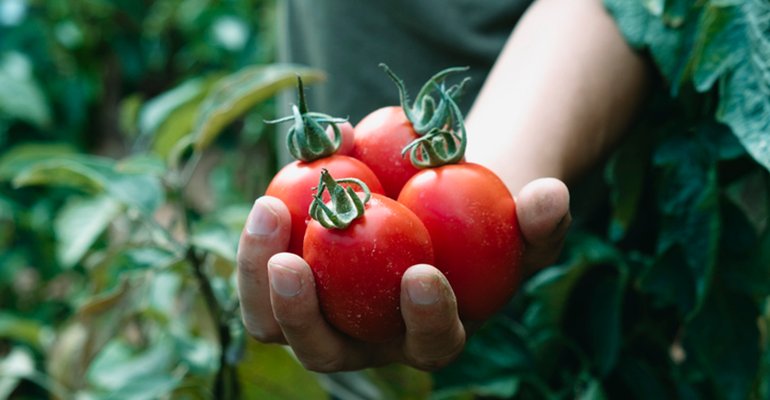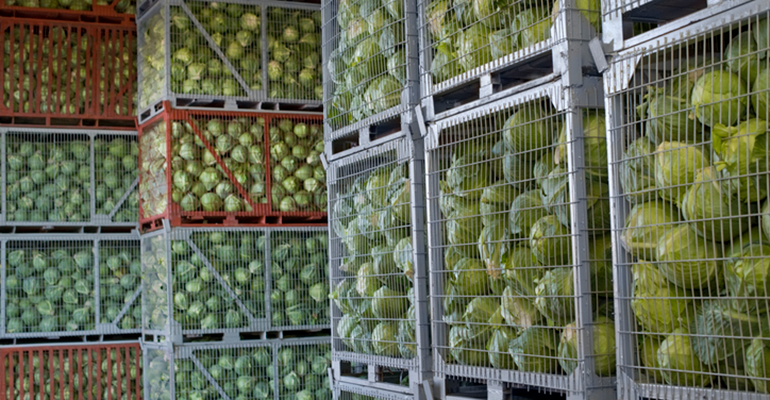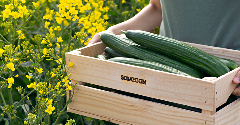News
EU Parliament supports loosening of regulations for NGT Plants
22 Feb 2024After voting in favour of the European Commission's proposal to ease restrictions for some plants produced by new genomic techniques (NGTs), the European Parliament is ready to start negotiations with EU member states on the final law.
The proposal, which passed with 307 votes in favour, 263 against, and 41 abstentions, comes amidst growing interest in NGTs, which are increasingly becoming available in countries outside the EU. Non-browning bananas in the Philippines, for example, have potential benefits like reducing food waste and CO2 emissions.

NGTs, also referred to as gene editing techniques, alter an organism’s genetic material. By enabling precise editing of DNA without introducing undesired or unplanned side mutations, which may happen with traditional breeding methods, NGTs produce faster and more targeted modifications. In contrast, genetically modified organisms (GMOs), transplant genes between species, which introduces foreign genetic material into the organism’s genome.
NGT plants are currently subject to the same regulations as genetically modified organisms (GMOs), but to better reflect the distinct risk profiles of NGT plants, the Commission proposed classifying the plants into two categories, each with clear regulation: NGT 1 plants, which are considered equivalent to conventional plants, and NGT 2 plants, which would be subject to stricter regulations.
The rapporteur for the proposal, Jessica Polfjärd, outlined how NGTs can assist Europe’s food system to become more sustainable and resilient by allowing “the development of improved plant varieties that can ensure higher yields, be climate resistant or which require fewer fertilisers and pesticides”.
Copa and Cogeca, an EU-based advocacy group representing 22,000 agri-cooperatives and 22 million farmers and their family members, issued a press release in support of the proposal, outlining that the “vote is seen by the EU farming community as a new step in the right direction”.
 © iStock/zilli
© iStock/zilli
NGT 1 plants would be exempt from GMO legislation
NGT 1 plants would be exempted from the stringent regulations they currently face under the GMO legislation, including the mandatory labelling of products. This exemption aims to facilitate the adoption of NGT 1 plants by streamlining regulatory processes and reducing barriers to entry for farmers and breeders. Transparency measures would also be put in place, including setting up a public online list of all NGT 1 plants.
NGT 2 plants, on the other hand, would be subject to more rigorous oversight and would stay under existing GMO legislation. While this may entail a more complex authorisation process, MEPs have proposed an accelerated risk assessment procedure to speed up the approval of NGT 2 plants that demonstrate the potential to contribute to a sustainable agricultural system, but they highlight that the precautionary principle must be respected.
The members of parliament (MEPs) acknowledged both the potential of NGTs to transform agriculture and the need for clear regulations to ensure safety and consumer confidence. MEPs also agreed that all NGT plants should remain prohibited in organic production as their compatibility requires further consideration.
A full ban on all patents proposed for NGT plants
Regarding intellectual property rights, MEPs have proposed the introduction of a full ban on patents for all NGT plants, genetic material, and associated processes. MEPs amended the proposal to include this after recognising the potential for legal uncertainties, increased costs associated with patenting NGT technologies, and new dependencies for farmers and breeders.
By June 2025, MEPs have requested a report on the impact of patents on farmers' and breeders' access to varied plant reproductive material and a legislative proposal to update EU rules on intellectual property rights accordingly. In addition, MEPs want the Commission to report on how consumers and producers perceive the new techniques, seven years after it enters into force.
Next steps: Negotiations with EU member states
Polfjärd highlighted the significance of NGTs in enhancing food security and promoting sustainable agricultural practices. She said: “We finally have a chance to implement rules that embrace innovation and I look forward to concluding negotiations in the Parliament and with the Council as soon as possible.”
Moving forward, the European Parliament is set to commence negotiations with EU member states to finalise the proposed regulations.
Related news

Nitrites: Pressure grows on UK to follow EU’s lead
20 Nov 2025
Pressure is growing on the UK to follow the EU’s lead after the bloc revised its regulations on the permitted levels of nitrites and nitrates in cured meats.
Read more
Matcha madness: Why green is this year’s hottest colour
19 Nov 2025
Five years ago, it was a struggle to find matcha outside of Japan. Now it seems to be popping up everywhere, from coffee shops to supermarket shelves.
Read more
Standing Ovation and Bel scale up casein production from dairy co-products
11 Nov 2025
Foodtech company Standing Ovation has partnered with cheese specialist Bel Group to manufacture dairy serums for industrial-scale casein production via precision fermentation.
Read more
Whistleblowers accuse UK meat industry of promoting cheap, unsustainable supply
7 Nov 2025
An anonymous group of industry insiders has accused the UK’s biggest food companies of systematically driving down meat quality and welfare standards.
Read more
Bord Bia presents Irish dairy ingredient suppliers at Fi Europe
6 Nov 2025
Dairygold Co-operative Society, The Carbery Group, and Ornua Co-operative: Meet with sustainable producers of Irish dairy ingredients at Food ingredients Europe 2025, Hall 7.2 Stand M18.
Read more
Could plant-based protection replace plastic packaging?
29 Oct 2025
Swedish foodtech company Saveggy has launched an additive-free plant-based protection for cucumbers, offering a waste-free packaging solution for fruit and vegetables.
Read more
Does promoting protein content push up plant-based sales?
27 Oct 2025
Promoting the protein content of meat-free products is a more effective sales strategy than adding carbon labels, a study of UK bakery chain Greggs suggests.
Read more
NMN: An on-trend ‘fountain of youth’ ingredient for anti-ageing products
24 Oct 2025
Dubbed an “on-trend fountain of youth ingredient” by Mintel, NMN is booming in anti-ageing ingestible products in Asia – but regulatory roadblocks are thwarting NPD efforts elsewhere, say experts.
Read more
EU citizens have high food safety awareness but cost guides purchasing
20 Oct 2025
EFSA’s 2025 Special Eurobarometer report on food safety shows shifting concerns, with cost remaining the primary factor influencing food purchasing decisions.
Read more
Food security-insecurity gap grows, hitting vulnerable regions hardest
16 Oct 2025
While food security has increased in most countries, the world’s most vulnerable nations’ struggles continue and intensify, a USDA analysis reveals.
Read more